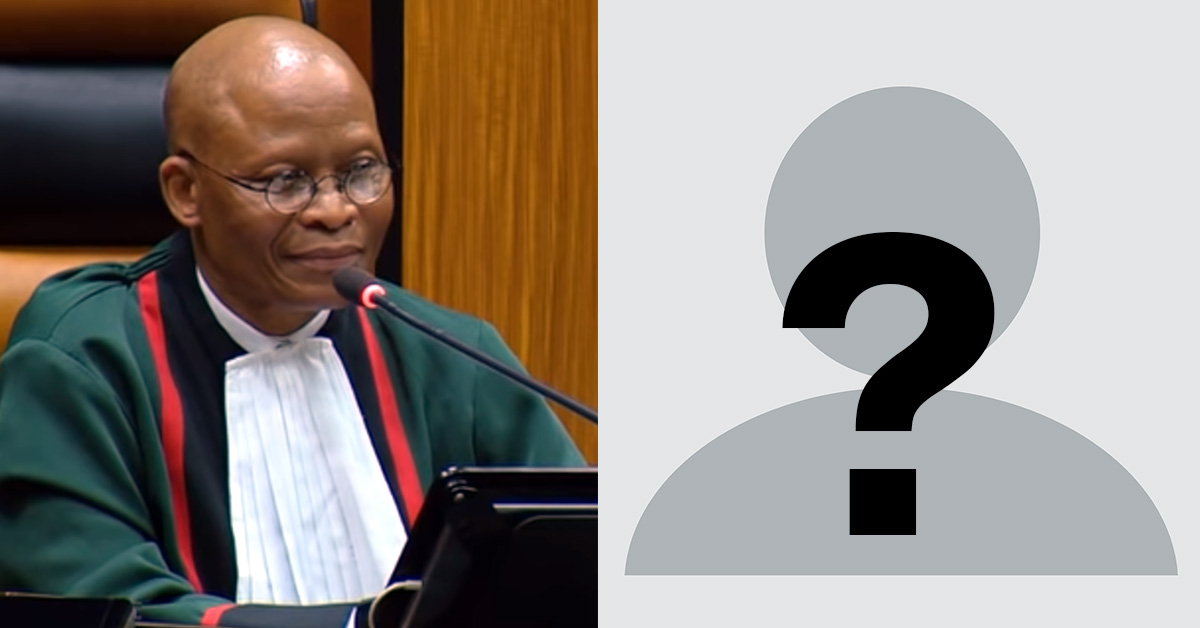Choosing South Africa’s New Chief Justice

The Catholic Parliamentary Liaison Office has welcomed President Cyril Ramaphosa’s announcement that the public would be able to participate in the process of selecting South Africa’s new Chief Justice.
“There are few public offices more important than that of the Chief Justice,” who heads the Constitutional Court and is the leader of the judiciary as a whole, said COPLO programme manager Mike Pothier. “As we well know, in recent times the judiciary has played a vital role in asserting democratic and constitutional values and practices in the face of a range of populist and corrupt assaults.”
The new Chief Justice will succeed Justice Mogoeng Mogoeng, who took office in September 2011.
“The Constitution gives the president unfettered power to appoint the Chief Justice, subject only to his or her having to consult the Judicial Service Commission (JSC) and the leaders of parties represented in the National Assembly,” Mr Pothier noted. Adding that there is no legal requirement for Mr Ramaphosa to invite public participation.
“Of course, the move must be seen in the context of the president’s recent admission, before the Zondo Commission of Enquiry into state capture, that the ANC’s deployment committee, which he chaired for some years, concerned itself with nominations of potential judges,” Mr Pothier said.
“While it may be an overreaction to claim that this amounted to interference in the appointment of judges, or that some of those appointed were effectively ANC ‘cadres’, it was nonetheless a damaging admission — in a constitutional democracy political parties should keep well clear of judicial appointment processes, otherwise the separation of powers and the independence of the judiciary are at risk,” he explained.
“The last-minute nature of the announcement reinforces the impression that the move is, to some extent, a form of damage control. Nominations must reach the presidency by October 1, hardly enough time for serious discussion in the various constituencies that might wish to put forward candidate,” Mr Pothier said, while also noting that Mr Ramaphosa’s decision could also be seen as a belated responsiveness to criticism.
Whatever the case, he said, “the announcement represents a voluntary concession of state power of the kind that governments seldom make. Put another way, it is an invitation to the citizenry to participate in a vitally important aspect of governance — the kind of invitation that, again, governments seldom extend,” Mr Pothier said, adding that in comparison to the partisan process of choosing senior judges in the United States, South Africa’s method is transparent and advanced.
Moreover, Mr Pothier noted, it will be difficult for government to retract this concession to the public. “The precedent has been set, and in future years the public and its organisations will have plenty of time to mobilise around their preferred candidates.”
He said that this decision is not an act of window-dressing, as is demonstrated by the composition of the panel which will consider the public’s nominations and draw up a shortlist for Mr Ramaphosa to choose from.
Chaired by Judge Navi Pillay, who served on the International Court of Justice and who is a former UN High Commissioner for Human Rights, it also includes former Public Protector Thuli Madonsela, noted law professor Ziyad Motala; and Mmapaseka Steve Letsike of the SA National Aids Council. The presence of two ANC politicians on the panel, justice minister Ronald Lamola and former justice minister Jeff Radebe, “does not seriously detract from its integrity”, Mr Pothier said.
“This latest announcement is another significant brick being laid in our gradual constitutional renovation,” he said.
- Book of Selected Works by Fr Albert Nolan Released - November 26, 2025
- Recovery and Victory Seminar at Mater Dei Pastoral Centre - November 22, 2025
- Invest in Community: CATHCA’s Urgent Call ahead of Global Fund Summit - November 20, 2025





